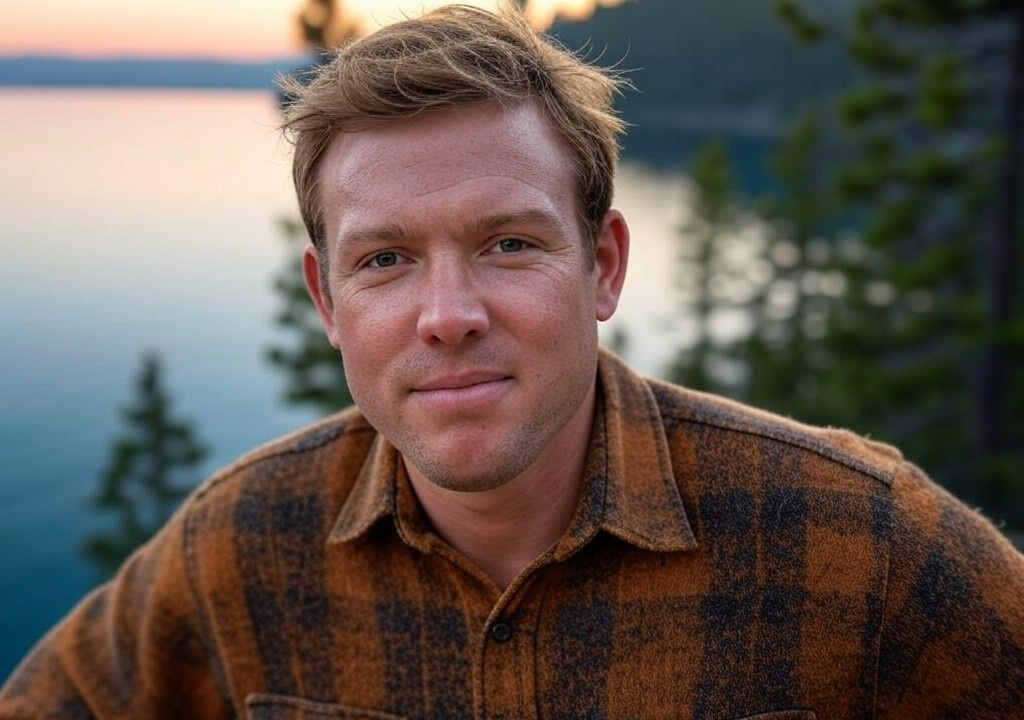The Family Myth I Grew Up Believing
The Tale of the “Unbreakable Davenport Tribe”
Lake Tahoe has a way of making everything feel timeless. Growing up in a cabin bordered by endless trees and the kind of stillness that sneaks into your soul, my family seemed rooted as firmly as the pines outside our window. My parents, Peter and June “Davenport” Donovan, were lodge owners with old-school grit, the type of folks who named every creak in the floorboards and swore they could predict winter just by the way the squirrels hoarded their acorns. Our family ethos was built on a single, unshakable cornerstone: “We Donovans stick together like pine sap.”
Sounds cozy, doesn’t it? Like an outdoor family drama Netflix hasn’t made yet but definitely should. But let me tell you, this was not just a saying; it was The Rule. If my sister, Mandy, and I so much as bickered over who got the last slice of huckleberry pie, Dad would step in, quoting the Davenport Tribe motto: “We don’t fall apart. That’s not how we’re built.”
For years, I wore this idea like a warm flannel—confidence in tightly woven bonds that no storm or bad ski season could tear apart. But as life would later prove, believing you’re unbreakable can sometimes blind you to the cracks forming right under your boots.
What Happens When “Unbreakable” Gets Tested
The myth began to unravel when I was 23, living in Davis for college and dating a woman named Allison who could bake sourdough from scratch and beat me at Scrabble in record time. She had joined us for Thanksgiving at the lodge, my dad’s favorite holiday. He’d make his signature speech about how “no matter how far we wander, we always come back together.” It was an unofficial rule: Davenports don’t skip Thanksgiving.
Except for Mandy. She skipped it that year. From what little I caught of her blunt texts, she’d booked a spontaneous trip to Europe with her boyfriend instead. Dad brushed it off, but it clearly ruffled his feathers. The Davenport Tribe had been broken. Worse, no one really knew why she chose to leave. A fight? Restlessness? A desperate need to escape gravy duty? At some point that evening, over my second (okay, third) slice of pie, Allison whispered, “You ever notice how your family doesn’t actually talk about conflict?”
Boom. Shrapnel right to the ego. Here was someone outside the wooden walls of my carefully curated family cabin life, calmly pointing out the one thing no one inside dared to admit—that our “unbreakable” closeness was actually more of a quiet avoidance pact. Sticking together was less about connecting deeply and more about sweeping cracks under the braided rug.
Patching vs. Ignoring the Cracks
After the Allison Thanksgiving Insight™ (a milestone I can still replay too vividly), I started paying attention to the ways my family handled problems: we didn’t. Not really. If Mom was overwhelmed with lodge bookings, she’d put on her best June Cleaver smile and power through kitchen prep without ever asking for help. If Dad and Mandy had a disagreement, they’d retreat to their corners like mismatched boxers waiting out the final bell. And me? I’d channel my frustrations into skiing solo laps down the backcountry, figuring fresh air could solve things that words couldn’t.
The truth is, a family—or any relationship—isn’t defined by its ability to avoid fractures. Spending years side-stepping the fissures doesn’t make you strong; it just makes you hope no one steps wrong.
What pulled me back from this myth wasn’t one big reveal but a series of small, reflective changes. A whispered truth from a girlfriend. A long-awaited, tipsy conversation with Mandy about how she felt suffocated by Dad’s obsession with the annual turkey fest. A breakup—yep, with Allison—punctuated by the realization that I’d inherited the family habit of dodging difficult conversations. It turned out, sticking together doesn’t mean never experiencing tension. It means learning to patch the cracks before the forest fire spreads.
What Family Myths Teach Us About Relationships
So, how does a family myth about being “unbreakable” tie into the spaghetti-bowl chaos of relationships? Simple: many of us carry unspoken beliefs about what makes love last, often handed down like those floppy, slightly embarrassing ski hats from the ‘90s. And many of them? Total baloney. Here’s what I learned:
-
Conflict Isn’t a Failure
Families—and couples—can’t avoid hitting rough patches, and pretending otherwise just paves the road for resentment. The healthiest relationships don’t hide from the tension; they address it like seasoned hikers navigating rocky trails. -
Closeness Requires Communication
Showing up for each other isn’t just about sharing turkey (or whatever metaphorical meal applies). It means being willing to share something scarier: honesty. It’s messy, uncomfortable, and sometimes involves tears, but it’s also what connection is built on. -
Rituals Aren’t the Same as Relationships
The holiday meals, weekly check-ins, or favorite couple traditions are meaningful, but they’re not a substitute for real emotional investment.
Reinventing the Davenport Tribe
I’m still untangling the sticky threads of my family myth today. I think we all are. But what’s different now is how we approach the conversation. A few years back, Mandy skipped Thanksgiving again. But this time, she sent flowers and called ahead, offering an actual explanation instead of relying on cryptic texts. Dad grumbled, sure, but he also admitted the holiday was wearing him out too. Turns out, letting some traditions evolve helped us connect better than clinging to rusted expectations.
I don’t live fully by the Davenport motto anymore. Instead of striving for unbreakable, I’d rather aim for flexible—the kind of connections that can handle things bending out of shape now and then, as long as we’re willing to weave them back together.
Let me tell you, this new version of family feels a little more honest. And maybe I owe Allison (and her excellent sourdough) a thank-you for that first crack in the myth. My relationships—romantic, platonic, and familial—are better for it now. Because here’s the truth: pine sap is sticky, but even it isn’t permanent. What makes families and relationships endure is the work we do to hold them up, cracks and all.




















